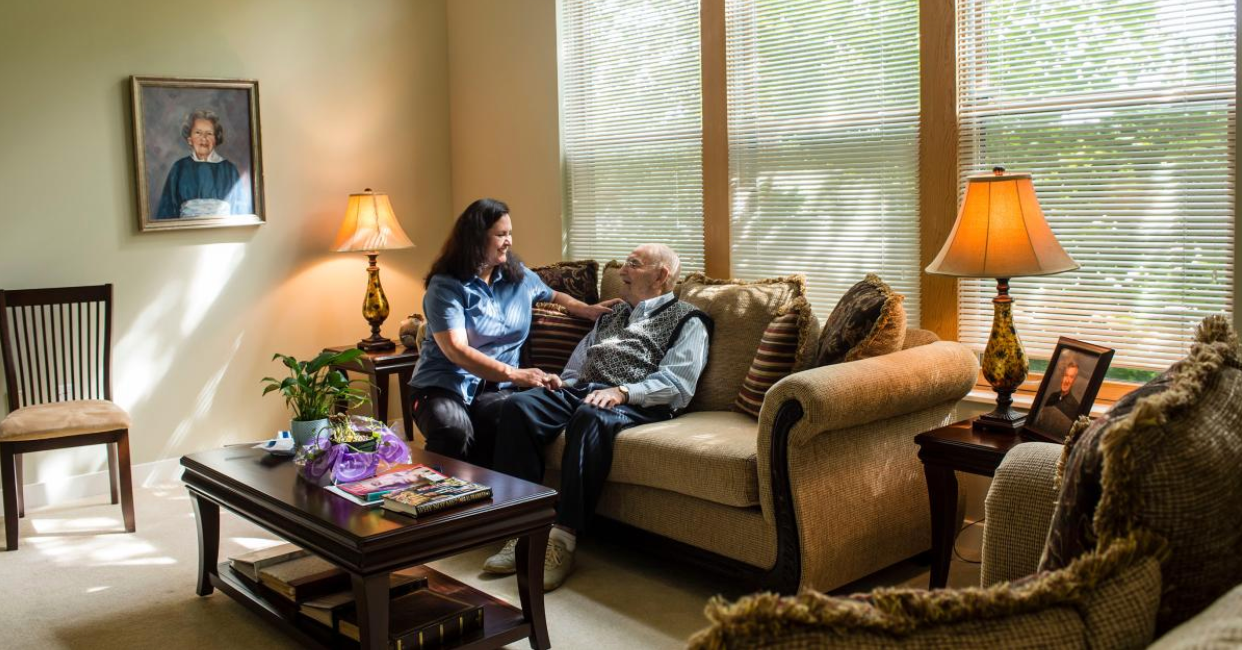What Is the Life Expectancy With a High Calcium Score? (CAC Score Risks Explained)
What is the Life Expectancy with a High Calcium Score? (CAC Score Risk Explained)
According to Mayo Clinic "a coronary calcium scan is a special computerized tomography (CT) scan of the heart. It looks for calcium deposits in the heart arteries. A buildup of calcium can narrow the arteries and reduce blood flow to the heart. A coronary calcium scan may show coronary artery disease before you have symptoms. Coronary calcium scan results can help determine the risk of heart attacks or strokes. Results from the scan may be used to plan or change treatment for coronary artery disease."
The University of Maryland Medical Center states "the coronary arteries are the vessels that supply oxygen-rich blood to the heart. Plaque — made of fat, calcium and other substances — can build up and narrow or close the arteries. To detect this build-up, your physician may order cardiac calcium scoring — a test that is also known as coronary artery calcium (CAC) scoring, a heart scan or calcium score."
Understanding what a coronary calcium score means is essential for taking control of your heart health—especially if you're at risk for coronary artery disease or already managing early warning signs. But what does a high calcium score really indicate about your life expectancy? Is it possible to live a long, healthy life with severe coronary calcification? In the sections below, we’ll break down exactly what your calcium score says about your future, how to lower your risk, what foods to avoid, and how home care can support you or your loved one in managing cardiovascular health at home. Keep reading to get clear, expert-backed answers to the most common questions about CAC scores, life expectancy, and what to do next.

Why Does Coronary Artery Calcium (CAC) Score Matter?
A high coronary artery calcium (CAC) score is one of the most reliable indicators of cardiovascular risk. But does it mean you won’t live long? Should you be worried? And most importantly—can you do something about it?
If you or your loved one recently received a high CAC score, it’s normal to feel overwhelmed. This article from 7 Day Home Care will explain, in clear terms, what your calcium score means, how it may affect your life expectancy, and what actions can significantly improve your outlook. We’ll also answer key questions people ask every day, such as:
Can I live a long life with a high CAC score?
What foods should I avoid?
How can I lower my calcium score naturally or with medical care?
What Is a Coronary Calcium Score?
A coronary calcium score measures calcified plaque buildup in your heart’s arteries using a specialized CT scan. This plaque is a sign of atherosclerosis, a disease in which arteries harden and narrow, increasing your risk of heart attack and stroke.
The score you receive is a number that represents how much plaque is present. Higher numbers signal more plaque and a greater chance of cardiovascular problems in the future.
What Does My Calcium Score Mean?
Every calcium score falls into a risk category. Here's what those numbers typically mean:
- Score of 0: No visible plaque. This is considered very low risk.
- Score between 1–99: Mild plaque buildup. You may be at low to mild risk, depending on age and lifestyle.
- Score between 100–399: Moderate plaque. This indicates a moderate risk for heart disease and usually prompts a deeper evaluation.
- Score of 400 or higher: Extensive plaque buildup. This means you’re at high risk of a cardiac event such as a heart attack or stroke.
- Score over 1,000: Severe calcification. This is considered very high risk and often requires aggressive management.
These numbers are not a diagnosis. They are warning signals—early alerts that allow you to take control of your future health.
What Happens If I Have a High Calcium Score?
If your score is over 400, it means your arteries are significantly narrowed due to plaque buildup. This can:
- Reduce blood flow to the heart
- Increase the chance of a clot or rupture
- Raise your risk of sudden heart attack or stroke
However, a high calcium score does not mean you will definitely have a heart attack. It means your risk is elevated—and now is the time to act. With medication, diet, exercise, and support, you can dramatically reduce that risk and live many more healthy years.
Can I Live a Long Life With a High CAC Score?
Yes. Many people with high CAC scores live well into their 70s, 80s, and beyond. The key is how you respond once you know your score.
Here’s what makes the difference:
- Statins and other medications to manage cholesterol and stabilize plaque
- A heart-healthy diet low in saturated fats and high in plant-based foods
- Exercise, even just walking 30 minutes a day
- No smoking, and strict control of high blood pressure or diabetes
- Regular follow-up care with your doctor or cardiologist
In one major study, people with high CAC scores who made strong lifestyle changes saw a 60% reduction in heart attack risk over the next decade.
What Is the Life Expectancy With Severe Coronary Calcification?
Life expectancy depends on many variables, but research shows that:
- Adults under 50 with a CAC score over 400 may have a 4–6 year shorter lifespan than peers with a score of 0
- Adults between 50 and 70 may face a 2–4 year reduction, though this depends on other factors like smoking, diabetes, and family history
- Adults over 70 with a high score still face risk, but the impact on total lifespan is less predictable, since age itself becomes a stronger factor
The good news is that you can interrupt this trend. Stabilizing plaque and preventing new buildup dramatically improves your odds.
What Is the Mortality Rate for CAC Patients?
Your risk of death increases with your calcium score—but it’s not set in stone. On average:
- Score of 0: Less than 2% mortality rate over 10 years
- Score between 100–399: Around 8–15% 10-year mortality rate
- Score over 1,000: Up to 30% or more risk of dying from heart-related issues over the next decade
These figures reflect general trends. Individual outcomes vary widely depending on whether or not a person follows medical recommendations and adopts heart-healthy habits.
What Is the Life Expectancy of Someone With Hardening of the Arteries?
Atherosclerosis, or hardening of the arteries, is the root cause of coronary calcification. Left untreated, it can lead to:
- Heart attacks
- Angina (chest pain)
- Stroke
- Heart failure
- Kidney problems
Without intervention, life expectancy may be significantly reduced. But with proper care, most people with atherosclerosis can live long, active lives. Modern cardiology, medications, and lifestyle changes work—and they work best when started early.
What Foods Should You Avoid If You Have a High Calcium Score?
To protect your heart and prevent further calcification, avoid foods that promote inflammation, raise cholesterol, or add strain on your blood vessels.
Foods to Avoid:
- Saturated fats: Found in red meats, butter, cheese, and full-fat dairy
- Trans fats: Often in baked goods, fried foods, and processed snacks
- Refined carbs: White bread, pastries, sugary cereals
- Added sugar: Soda, candy, and sweetened drinks
- High-sodium items: Canned soups, fast food, deli meats
- Alcohol: Limit or avoid entirely, especially if other risk factors exist
Better Alternatives:
- Leafy greens (spinach, kale)
- Whole grains (oats, brown rice)
- Olive oil instead of butter
- Nuts, legumes, and seeds
- Fatty fish like salmon or mackerel
- Berries, avocados, and citrus fruits
Following the Mediterranean diet has been shown to reduce cardiovascular risk and slow plaque progression.
How Can I Lower My Coronary Calcium Score?
You can’t reverse existing calcium buildup, but you can prevent it from getting worse and reduce your chance of a cardiac event.
Here are the most effective steps:
- Start statins: These cholesterol-lowering medications also help stabilize plaque
- Control blood pressure: Keep it below 120/80 when possible
- Quit smoking: Tobacco is a major driver of calcification and artery damage
- Exercise regularly: Aim for at least 150 minutes per week of moderate activity
- Maintain a healthy weight: Even small weight loss can improve risk
- Limit alcohol and sugar: Both increase inflammation and heart strain
- Reduce stress: Chronic stress can increase blood pressure and cortisol, both harmful to heart health
By combining medical treatment with daily lifestyle changes, many people keep their calcium score stable for years and avoid major events entirely.
When Should You Be Worried About Your Calcium Score?
You should take any CAC score seriously—but particularly if:
- Your score is 400 or higher
- You’re under age 70 with moderate or severe plaque
- You have multiple other risk factors, like smoking, diabetes, or family history of heart disease
A score over 1,000 signals very high risk and usually leads to more testing, including stress tests or echocardiograms. But again: it’s not a sentence. It’s a signal to act.
How 7 Day Home Care Can Help
At 7 Day Home Care, we know how overwhelming it can be to face a new health risk like coronary calcification. That’s why we provide trusted, compassionate in-home care tailored to seniors managing cardiovascular conditions, recovering from heart procedures, or living with chronic illness.
Our services include:
- Medication reminders and blood pressure monitoring
- Heart-healthy meal prep aligned with your doctor’s orders
- Light exercise support and daily activity guidance
- Accompaniment to cardiologist and primary care appointments
- Emotional support and stress reduction through routine and companionship
Whether you're living in Manhattan, Queens, Brooklyn, or Nassau County, Suffolk County on Long Island we’re here to support your heart, your health, and your peace of mind.
A high calcium score is serious—but it’s also a gift of foresight. It gives you the chance to take control of your health, prevent future complications, and extend your life. With the right care plan, daily support, and a renewed focus on lifestyle, you can live a longer, healthier, more independent life—even with a high CAC score.
If you or your loved one is navigating cardiovascular concerns and want help at home, call 7 Day Home Care today. Our experienced team is ready to help you take the next step—safely and confidently. 7 Day Home Care provides private pay in-home care services and is a approved provider under your long term care insurance policy throughout NYC, Manhattan, Queens, Brooklyn, and Long Island, New York. To learn more about our specialized in-home care services, please call 516-408-0034.
Brian Callahan
7 Day Home Care










